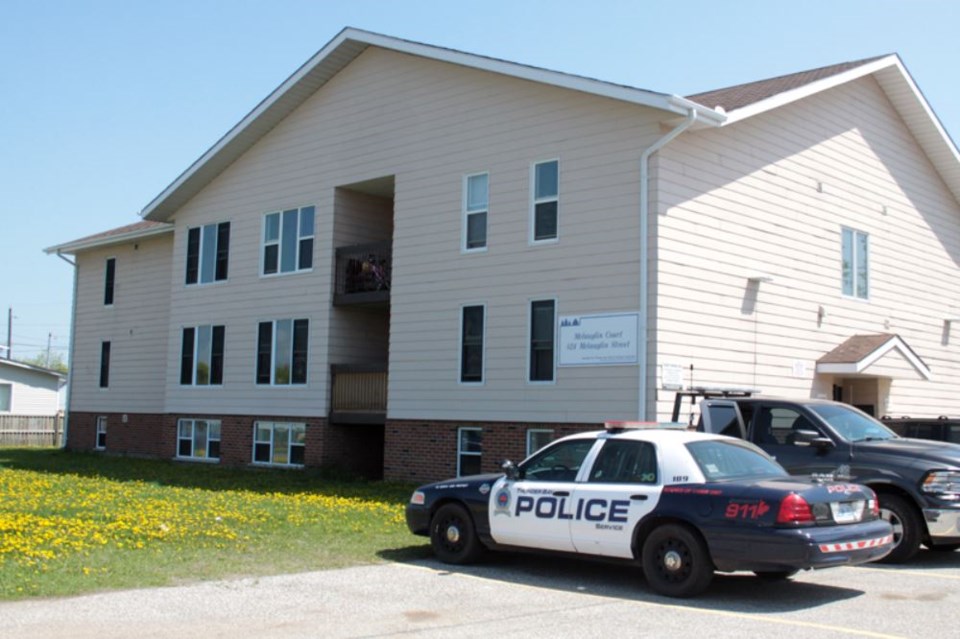THUNDER BAY – Robert Barbeau was a “lover, not a fighter,” whose “sudden, meaningless death” has left his family devastated.
Victim impact statements were read into court Thursday morning at the Thunder Bay Courthouse during a sentencing hearing for the 48-year-old’s killer.
A jury last month found David Wilson guilty of second-degree murder for the June 2014 killing of Barbeau, attacking the victim and stabbing him in the head with a hunting knife in the parking lot of their McLaughlin Street apartment complex.
The defence had argued Wilson, who has been diagnosed with paranoid schizophrenia, should be found not criminally for the crime as a result of mental illness.
That conviction carries on automatic life sentence, though Justice Helen Pierce is now tasked with determining how long Wilson must serve before he first becomes eligible to apply for parole.
Evidence entered into court included six victim impact statements, with three of them read aloud.
The victim’s sister told the court they had lost their mother just 48 days prior to Barbeau’s killing. In the weeks before the attack,
Barbeau had asked to rent out their mother’s house because he no longer wanted to live in the McLaughlin Street apartment building.
She denied the request, not believing it to be in her best financial interests.
She told the court she know has to live with the knowledge she could have prevented his death had she agreed to rent him the house, allowing him to move away from the scene of his eventual killing.
Barbeau’s brother-in-law, who also described himself as the victim’s best friend, told the court about how the family’s final image of their loved one is him on life support in a hospital bed, slowly dying for three days with the knife still embedded in his temple.
He called the case a “senseless, ridiculous waste of two lives.”
Crown prosecutor Rob Kozak urged Pierce to consider a 15-year parole ineligibility for Wilson, arguing the crime was driven by reality-based motives.
Kozak said Wilson had choices and multiple opportunities to stop the attack from happening, including self-reporting homicidal urges to a mental health professional or remaining in his apartment and not going back to the parking lot.
Instead, he went back outside and approached Barbeau from behind, stabbing him twice in the head and slashing him on the right side of the neck.
After the verdict, individual jury members recommended a period of ineligibility ranging from 15 years to the maximum 25 years.
Defence lawyer Neil McCartney, who is requesting Pierce to grant the minimum 10-year ineligibility period, said Wilson never attempted to circumvent responsibility or deny involvement. The trial came down to whether Wilson would spend the rest of his life in a prison or psychiatric facility.
Pierce asked McCartney to explain how a lesser ineligibility period would ensure protection of the public, which was a primary concern of the jury.
McCartney responded it would be up to the parole board, and likely psychiatrists, to determine whether Wilson should be released, adding there was no guarantee that would happen, no matter the period of ineligibility.
Pierce is expected to deliver her decision later Thursday afternoon.
